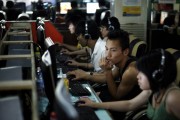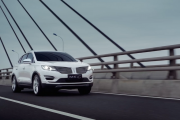One of the biggest issues Western firms have with China is the country’s stance on intellectual property rights. Despite the Chinese Government stepping up its efforts to battle the issue in recent years, the problems still exist.
Whether it be the stalls in Beijing’s Silk Market selling their staggering range of counterfeit designer goods, Chinese media broadcasters using copyright footage without permission, or the ever impressive copycat products (known in China as ‘山寨’ – Shānzhài) such as the recent ‘iPed’ — the fake iPad, there is no doubt about it intellectual property infringements are rife in the PRC.
Microsoft (微软 – Wēi ruǎn) has been fighting piracy of its products in the Mainland for a long time. Over the years, it has used range of approaches to tackle the issue.
For instance in 2008, Microsoft rolled out a program called “Windows Genuine Advantage” which caused “black screens of death” to appear every hour on unregistered versions of the Windows operating system. The only way to resolve the problem would have been to buy a genuine copy of Windows.
Yet, just a year earlier, Bill Gates stated that he liked the Chinese pirating his software over its competitors, because he believed that eventually Chinese consumers would pay for the real thing.
Unfortunately, this ‘something for nothing’ strategy did not quite work out and since 2007 Microsoft has won numerous court cases against Chinese firms around the issue.
Despite the software giant winning courtroom battles against Chinese companies, many people in the Middle Kingdom are still using pirated versions of Windows.
When Windows Vista launched over 20million copies were bought legally worldwide within a month, but astonishingly in China only 244 legal versions were purchased in that first two weeks — with many Chinese instead opting for the cheaper pirated version.
In fairness, the last couple of years have seen a decline of piracy rates in China, but it is still an area that Microsoft China takes very seriously.
To that end, and coinciding with Microsoft’s first year anniversary of the Windows 7 launch in China, the firm’s latest approach comes in the form of a large-scale advertising campaign titled. “真!就不一样” (Zhēn! Jiù bù yīyàng) which translates into English as “Genuine! It’s Not The Same“.
The campaign is launching in six major cities: Beijing, Nanjing, Chengdu, Xi’an, Wuhan and Hangzhou. Various tactics will be used to encourage Chinese consumers to purchase the genuine version of Windows 7 from; TV commercials, price discounts, cooperation with computer makers and even face-to-face sessions with the consumers themselves.
The advertising element of the campaign above aims to show Chinese citizens the risks and dangers that can occur from using pirated software.
There will be more TV ads and outdoor advertising to follow later this month, but for now this is just a taster of Microsoft’s biggest investment to date to win the battle against piracy in the PRC.
Chinese ‘Shanzai’ Copycats
Before we finish, I thought it might be worth sharing some of the great copycat (‘山寨’ – Shānzhài) products that have come out of China over the last few years:
Google vs. Goojje
note: Google is currently blocked in China and can only be accessed with the use of a China VPN
Mercedes-Benz ‘C-Class’ vs. Geely ‘Merrie 300’
KFC vs. KFG
Apple iPad vs. The iPed
Sony AA Batteries vs. Sqny AA Batteries
Nintendo Wii vs. Chintendo Vii
If these weren’t enough, the great Chinese imitators have even had a go at creating the next iPhone 5!
Have you got any copycat products you would like to share? Feel free to share them below.
























